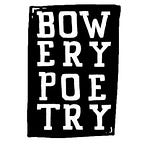The science (and poetry) of perspective
Three Questions with Canadian poet and ecology professor Madhur Anand, by LA Markuson
This Sunday, we’re going to have multiple levels of perspective opened up for us, guided by the experimental and boundary-blurring work of Madhur Anand and her collaborators. I had to know more about the cross-pollination between America and Canada. It turns out Alice Fulton (one of Anand’s heroes who shaped Anand’s work since she read “Sensual Math” in 1999) has just put Anand’s book on her own poetry syllabus at Cornell. That’s enough to make a Punnett square into a sonnet, if you ask me.
LA: Are you a poet taking on scientific themes, or a scientist working through poetry? (and does that even matter to you?)
MA: Both. It matters to me in the sense that I have no choice but to write through many levels, or layers, of knowing.
LA: What is your aspiration or goal through bridging the disparate studies of poetics and ecology?
MA: My aspiration is simply to write very good poems, and an occasional outstanding one. I think it is the context in which I am doing it though that can bridge disparate fields — the fact that I was a fully-trained and working scientist before discovering poetry.
Poetry and science are both fields that are shunned by more people than necessary.
Some find poetry difficult, and some find science difficult. Well, they both are. But not so much that we should fear approaching them. I do wish that others can enjoy what I do in these things. So, I do teach workshops on poetry and science. And you’ll be surprised by the insights that come out of them.
LA: As a teacher and parent, what good can poetry do for younger generations?
MA: I don’t like to write prescriptions for life. But for me, great poems are not only beautiful, they are things that makes me think. Even if that thinking is about emotions. I believe our rationality and the unknowable of the world can work together. For peace, love, forgiveness, empathy, and sustainability.
LA: Absolutely — thank you so much, and see you Sunday!
Prepare for Sunday by reading two poems by Anand on Lemon Hound, the second of which is in her scientific found poem style. (inspired by an article called “The scientific value of the largest remaining old-growth red pine forests in North America” that she co-authored)
Tickets here, and RSVP on FB here.
And if you’re a teacher looking to know more about crossover between science and poetry, check out this lesson plan.
Much love.
